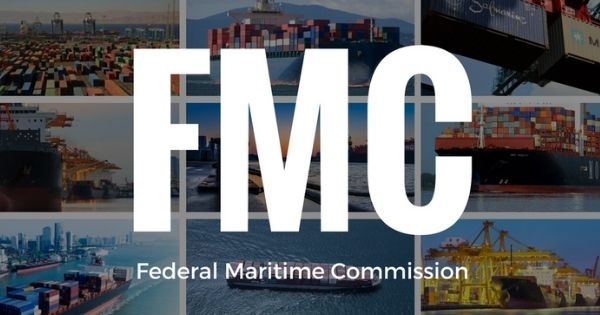
FMC granting ‘special permission authority’ for Red Sea diversion freight hikes
WASHINGTON : The hostilities in the Red Sea will likely be igniting other battles, albeit of a commercial rather than military nature, as container lines seek hefty rate increases and file urgent requests with US regulators.
Since the attacks on vessels transiting the Red Sea, particularly near the narrow strait “Bab-el-Mandeb”, where the waterway meets the Gulf of Aden, began in late-November, 2023 and heightened in mid-December.
The messages from the major container lines were mixed. Some said that they would avoid the Red Sea, and deviate around African continent, while others – pointing to mid-December announcements from the US= on the implementation of Operation Prosperity Guardian, a multi-nation consortium that would protect shipping from hostile actions – suggested that they would continue their transits between the Mediterranean and Indian Ocean.
Military analysts have pointed out that participants have not rushed to join the US in Operation Prosperity Guardian, as the politics of the present hostilities are not clear cut – in contrast to measures taken against Somali pirates in 2009 which saw unanimous support.
By early January, Maersk and Hapag-Lloyd, two carriers that had hoped to continue at least some moves via the Red Sea, had come around to fully diverting their vessels- with their decision likely swayed by US Navy actions against Houthi boats attacking a Maersk vessel, just prior to the turn of the year, and Iran subsequently dispatching a naval vessel to the waterway.
Depending on the particular trade lane and vessel parameters, moves around the Cape of Good Hope will add anywhere from 10 to 14 days to an Asia/ Europe journey, adding substantially to voyage-related costs, but saving on extensive increases in war risk insurance premia. Not surprisingly, the carriers have been seeking to quickly implement surcharges that will help them offset these unanticipated increases.
In the States, the Federal Maritime Commission (FMC) oversees the activities of ocean carriers in the liner trades serving US ports. Deep within the US Code of Federal Regulations (CFR), the language concerning increases is as follows: “INCREASES. —A new or initial rate or change in an existing rate that results in an increased cost to a shipper may not become effective earlier than 30 days after publication.
However, for good cause, the Federal Maritime Commission may allow the rate to become effective sooner.” In the waning days of 2023, and into early 2024, the FMC has received a flurry of requests for urgent increases.
Urgent, in the case of a Maersk request to the FMC filed on December 28, 2023, came with a one-day turnaround, in the affirmative.
The carrier’s request for increases on rates for 20-footers ($1,300)/ 40-footers ($1,600) / 40-foot reefers ($2,100) stated, in part: “As a global carrier, Maersk operates services between the United States and various locations around the world, including the Middle East and India. The services from the Middle East and India have historically transited the Suel Canal, which provides a shorter, faster and less expensive alternative to sailing around the southern cape of Africa.
“These attacks have made it too dangerous to continue operating services via the Suez Canal. Maersk has decided instead to route its vessels around Africa for safety of the crews, vessels, and cargo. Diverting vessels away from the Suez Canal and sailing around Africa significantly lengthens the voyage between the locations in question and the US, and significantly increases the cost of providing this service. In addition, the disruption of normal service patterns is expected to have an adverse impact on operations globally (i.e., on non-Suez services), including equipment flows and availability and congestion/ bottlenecks.”
The FMC’s response, dated December 29, 2023, was highlighted by a one liner: “Special permission authority is hereby granted”. The likely commercial battles – which, to be clear, have not yet emerged – will come as cargo interests closely scrutinize the increases, and then question their applicability to specific shipments on specific voyages.

